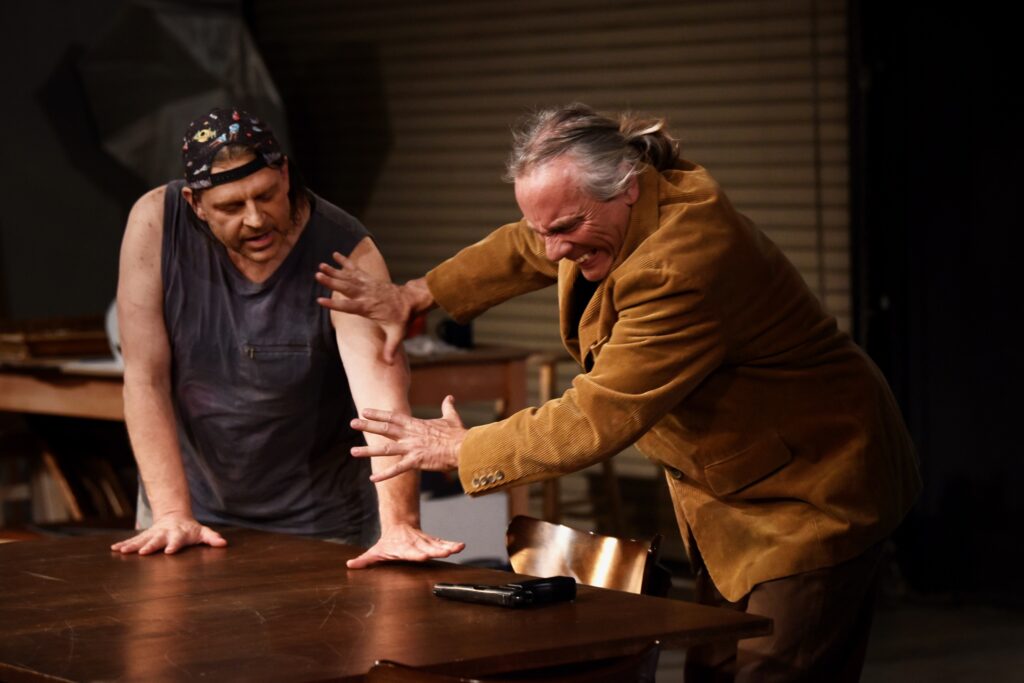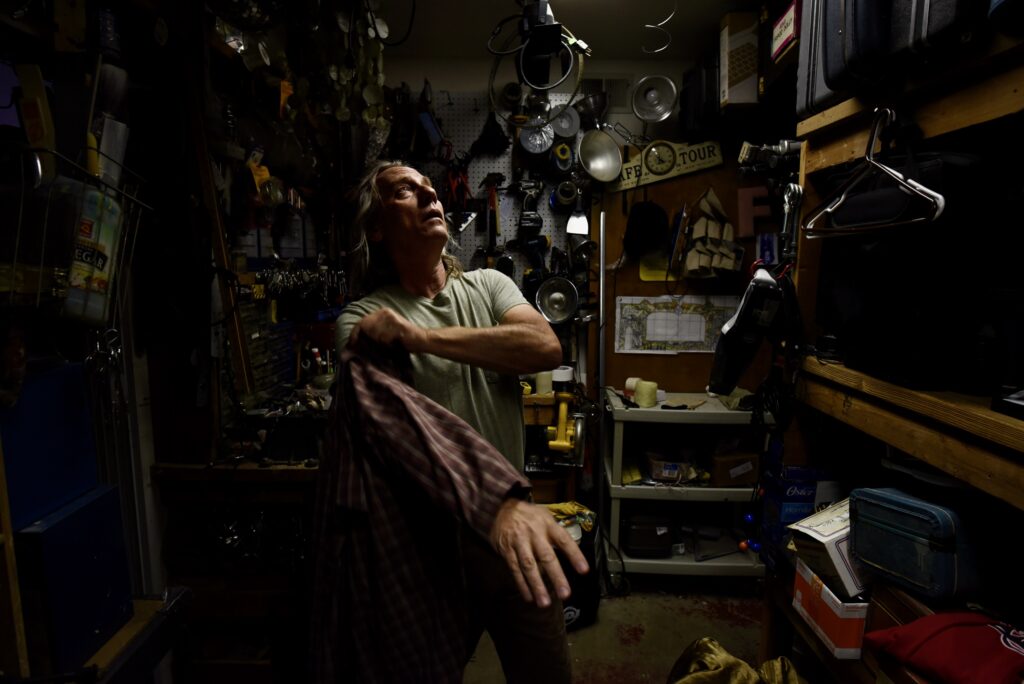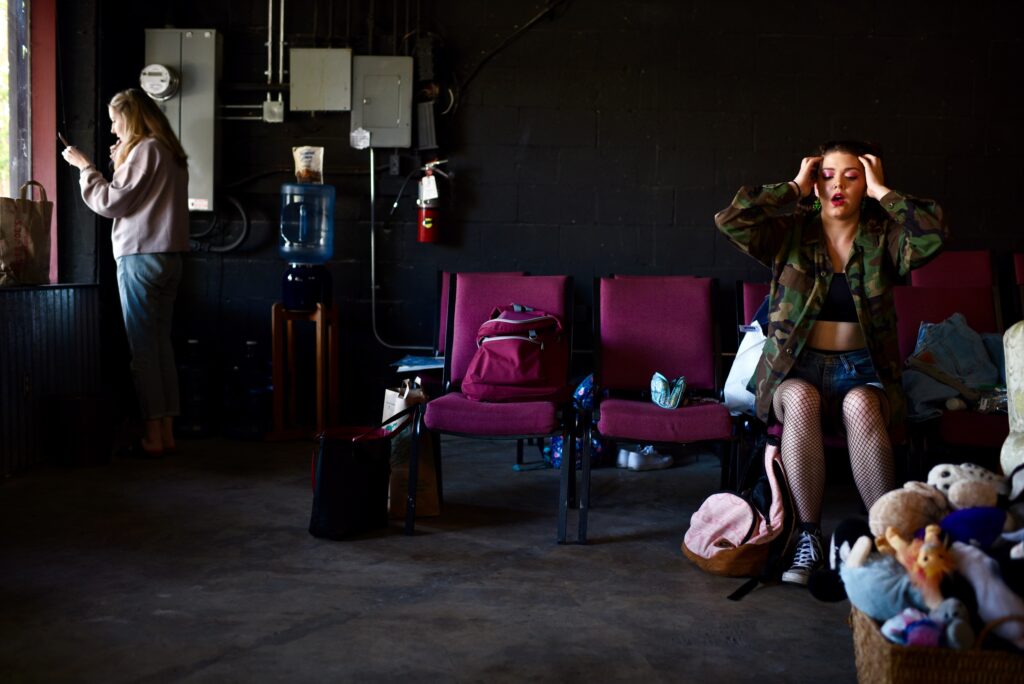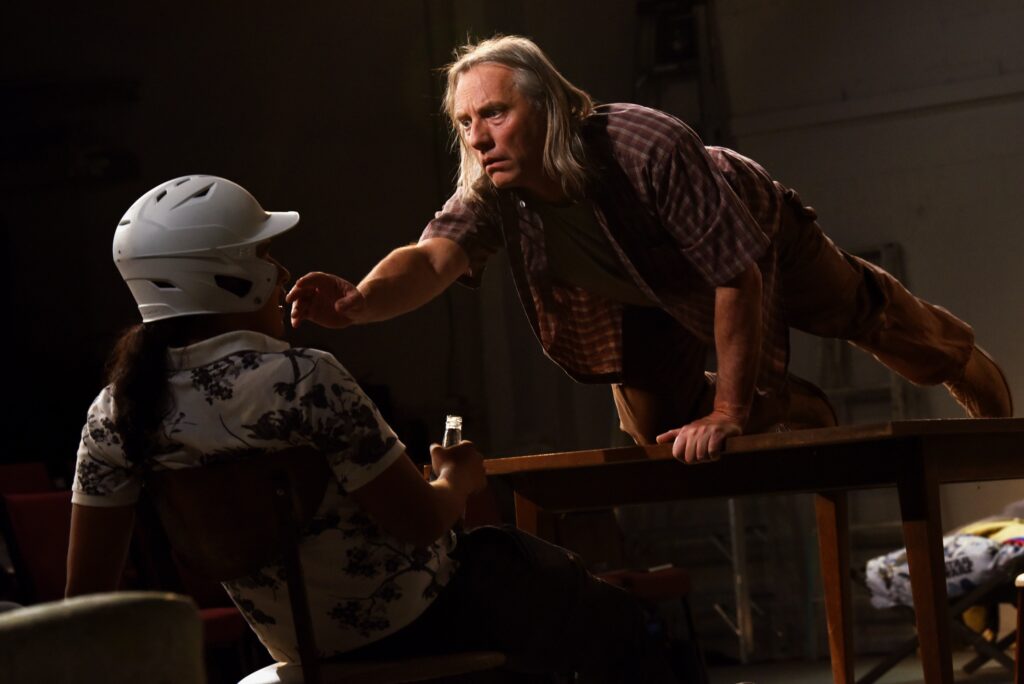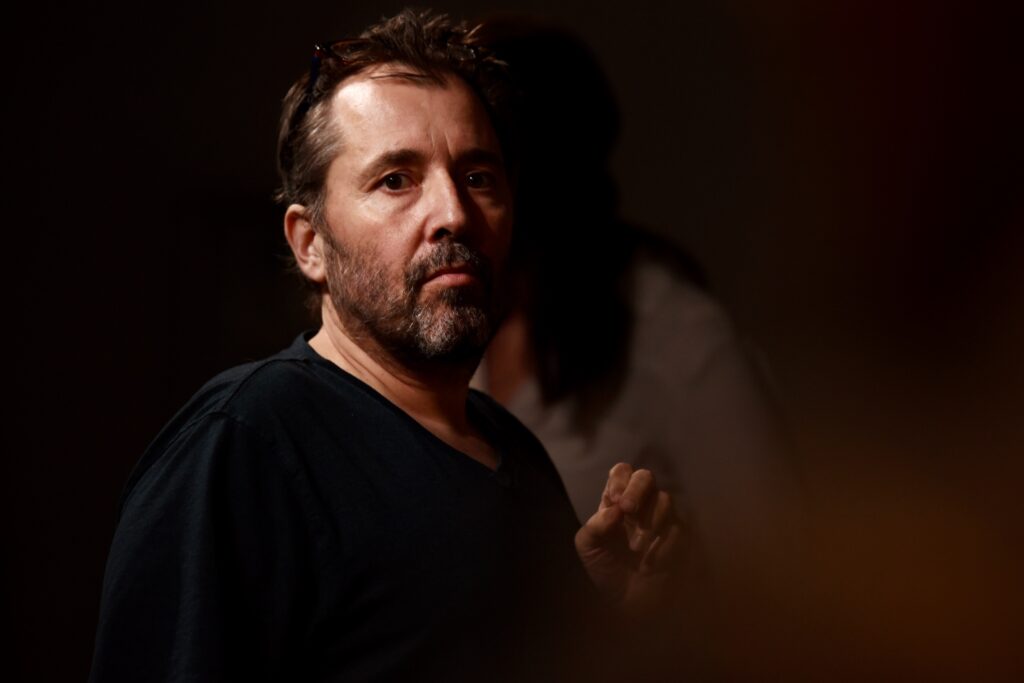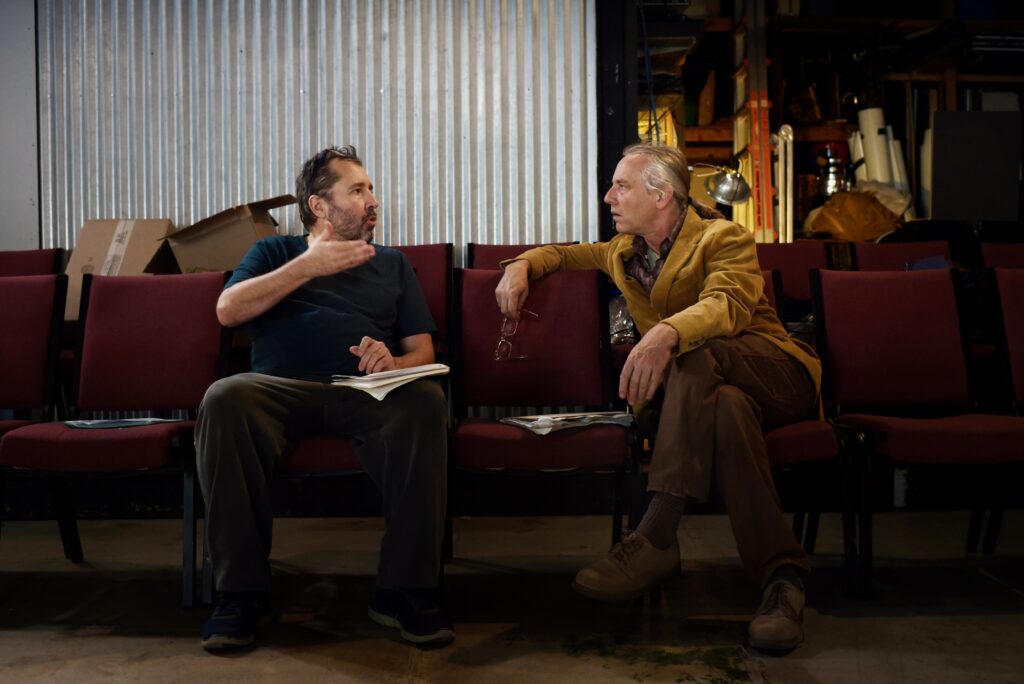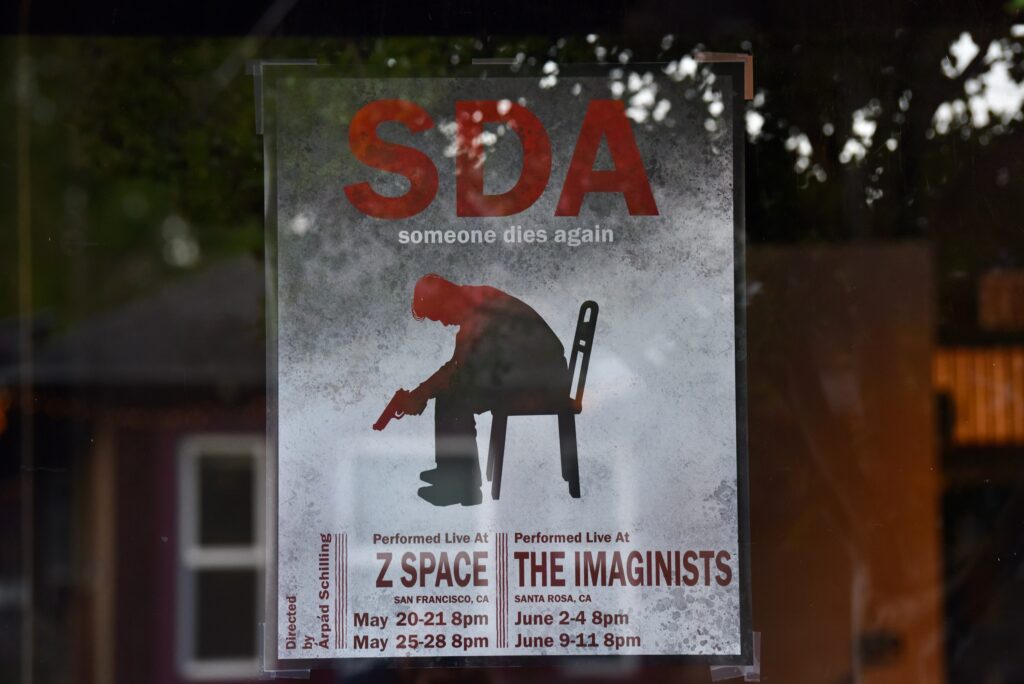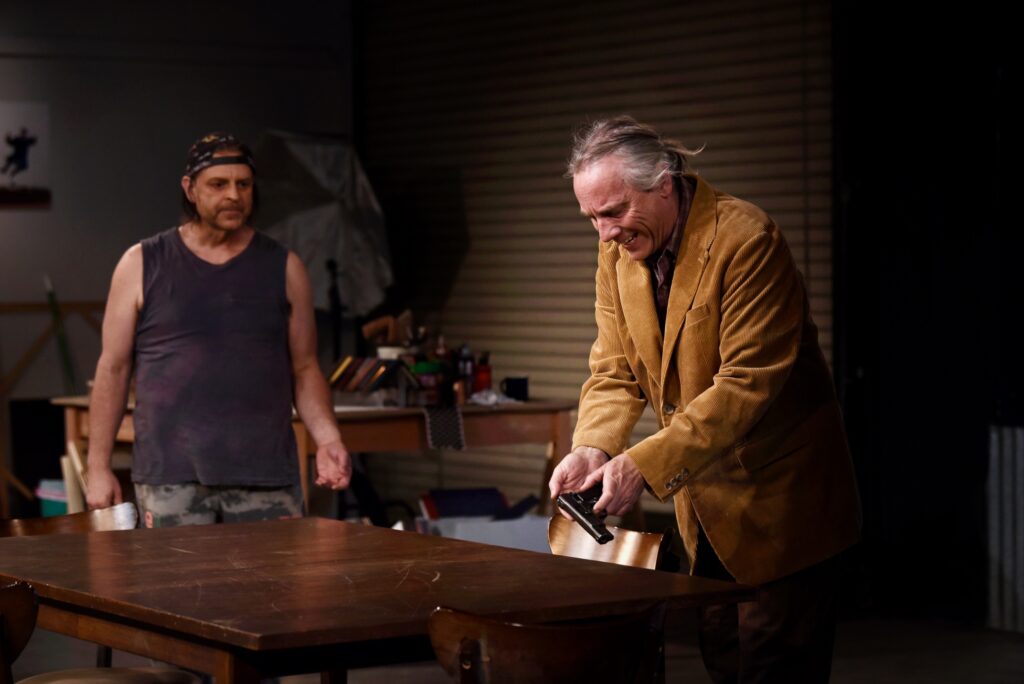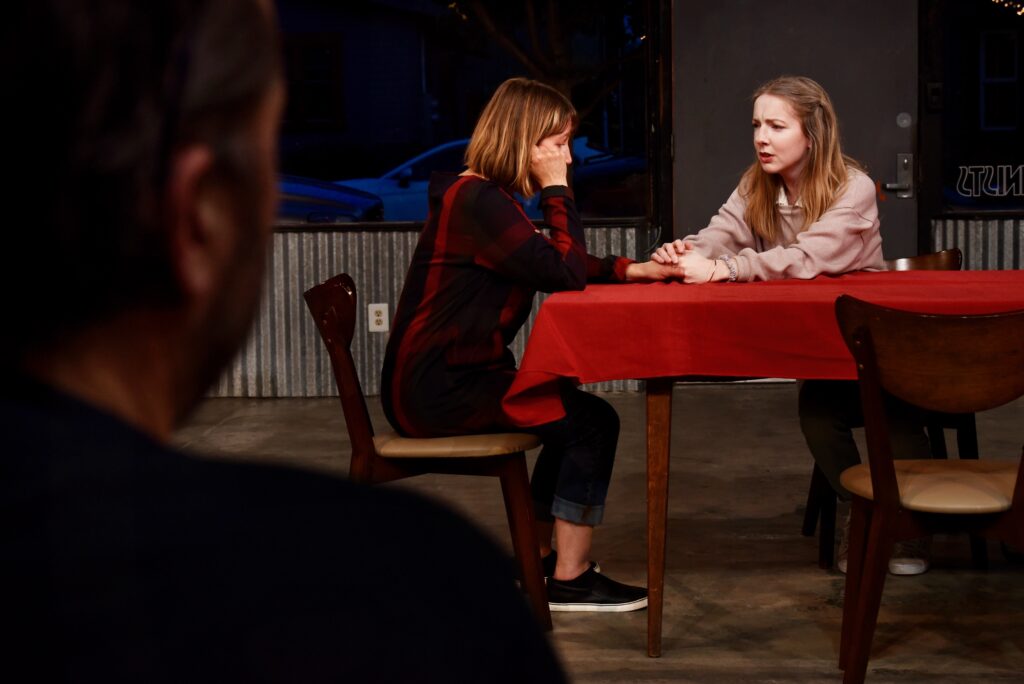Collaborating quietly in their small theater in Santa Rosa’s A Street arts district, the Imaginists experimental theatrical company has been rehearsing a new project of potential artistic and social importance.
Titled “SDA (Someone Dies Again),” the experimental theater piece tackles the issue of guns and gun violence.
Developing the play during rehearsals, rather than from a previously written script, a local cast of 12 has been working for the past two months with acclaimed Hungarian director and playwright Árpád Schilling, who arrived in Santa Rosa in February to start planning the production.
Commissioned by the Imaginists and backed by a $150,000 William and Flora Hewlett Foundation grant, the piece premiered May 20 in San Francisco at Z Space, where the local company has worked twice before, and will continue June 2-11 at the Imaginists’ space in Santa Rosa.
Schilling said the intent of the play is not to deliver a lecture on gun violence but to examine the issue from a fresh point of view.
“We don’t focus on the gun. To have it onstage all the time would be like a Western movie,” Schilling said during a recent interview at the Imaginists’ theater. “Step by step, we formed our topic. We talk about the society behind the gun. We never say we know the answer.”
The playwright and director’s views on guns are influenced by his own background growing up in Hungary, he said.
“One of the strange things in the United States for me, coming from Europe, is guns. It is very rare there to read or hear that something happened with a gun. Here, if you go to visit someone, you can’t be sure if there is a gun in the house or not,” he explained.
He does not profess to be completely neutral on the subject.
“If you have a conflict, and there is a trigger in you, it may be much better not to have a gun next to you,” Schilling added.
During rehearsals, Schilling and the actors have experimented with characters, scenes and story.
“I am not a director who tells people what to do or to do this or that,” Schilling said. “We have given character onstage to be complex. Actors can propose changes, but I want to see good decisions reflected on stage. It’s editing and rewriting at the same time. People to accept that in the end, I decide.”
What Schilling and the Imaginists share is a commitment to developing theatrical pieces through interaction between author, director and cast, said Amy Pinto, artistic director for production at the Imaginists.
“Imaginists is a place that has developed over years of working with community members, emerging performers and professionals. We bring everyone together,” she said.
Schilling, 48, may not be a household name in the U.S., but he has built an international reputation and is respected in theater circles.
Between 1995 and 2008, his Krétakör theater in Budapest became the best-known independent theater company in Hungary and was recognized abroad as an innovative theater. Schilling disbanded the company in 2008 to create a performing and media art workshop called Chalk Circle. Schilling and his family left Hungary for France in 2018.
Founded in 2002 by artistic directors Pinto and Brent Lindsay, the Imaginists theater describes itself on its website as “a performance laboratory investigating the intersection of art and community.”
The roots of the Imaginists go back to 1994 and the performance collective KITUS (Knights of Indulgence Theatre United States), whose vision was a break from traditional and regional theater models. In 2001, the original group disbanded. Lindsay and Pinto went on to create the Imaginists.
What the Imaginists and Schilling share is a dedication to development of characters and stories through the rehearsal process, working with the actors to produce a performance piece.
The collaboration between Schilling and the Imaginists has a long history. In 2013, Pinto attended dunaPart, the Hungarian festival of independent theater, in Budapest and heard a talk by Schilling.
In 2014, Hungarian theater critic Tamas Jaszay took a tour of U.S. theaters in different cities. He saw a production by the Imaginists and suggested they collaborate with Schilling. Later the same year, Lindsay met with Schilling in Budapest and agreed to explore the idea.
In 2015, Schilling and his wife, Lilla, an actor, spent a week in Santa Rosa, meeting with the Imaginists and attending rehearsals, and plans for a collaboration moved forward.
Lindsay returned to Budapest in 2017, and then traveled with Schilling to Slovenia to see rehearsals and the premiere of “EXIT,” a theater piece directed by Árpád in three languages.
The collaboration got its big boost in 2018, when the Imaginists and Schilling received the $150,000 Hewlett 50 Arts Commission for their project. The plan was to premiere the work in 2020, but that was delayed by the coronavirus pandemic.
An initiative of the William and Flora Hewlett Foundation, the Hewlett 50 Arts Commissions were launched in 2017 to celebrate the foundation’s 50th anniversary. The five-year, $8 million initiative supports the creation and premiere of 50 new works from outstanding artists.
In April, another Hewlett 50 project, “Wicked Bodies (Sonoma),” by choreographer Liz Lerman, premiered at the Green Music Center at Sonoma State University in Rohnert Park.
For Pinto of the Imaginists, “SDA” is not only the culmination of a long collaboration, but an opportunity to tackle the important issue of gun violence in a valid and dramatic way.
“There is a gun in the show. It’s a character,” she said. “Even when the gun isn’t there, it’s a presence.”
But for her, the significance of the project goes beyond that.
“International collaborations are rare. It requires a trust, to fail, to learn together, despite all of our differences. And we recognize through this process that whether we live in the same country or not, how do we collaborate? Can we can truly listen to each other?” Pinto said.
“It is good to create something together when we are all coming from very different backgrounds and experiences,” she added. “This language of theater, in this context, is an antidote and an exorcism.”
This article was originally published in The Press Democrat. You can reach Staff Writer Dan Taylor at dan.taylor@pressdemocrat.com or 707-521-5243. On Twitter @danarts.










